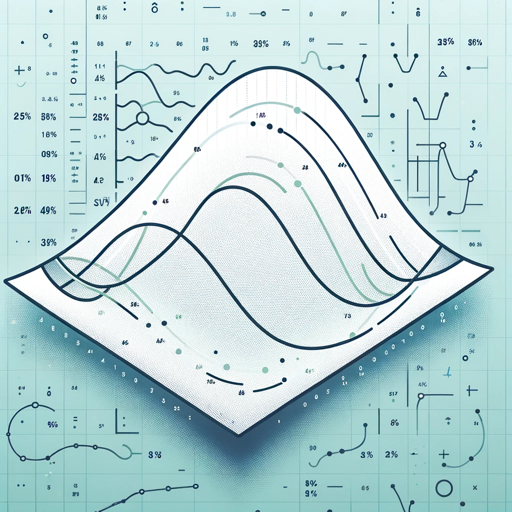Qualitative Research Data Analysis-qualitative thematic analysis tool
AI-powered qualitative data analysis
Identify all themes from the transcripts.
Provide unedited quotes to support each theme.
Generate short definitions for the results table.
Explain thematic analysis and its steps.
Provide coding scheme
Related Tools
Load More
Thematic Analysis by Dr Kriukow
All-in-one tool for qualitative research and qualitative data analysis - support with thematic analysis, NVivo software, qualitative coding, research planning and implementation

Qualitative Researcher
Expert in qualitative research and document analysis.

NVivo Data Analysis
The "Nvivo Data Analysis Expert" model is a highly specialized AI tool designed to offer comprehensive guidance for users working with NVivo, a leading qualitative data analysis software. It guides users to code, theme, and interpret complex qualitative d

A Data Analyzer
Expert in Data Analysis and Visualization

Qualitative Insights
A qualitative analysis assistant surpassing NVivo and MAXQDA in capabilities.

Quali Research - Text analysis Assistant
Expert in qualitative text analysis.
20.0 / 5 (200 votes)
Introduction to Qualitative Research Data Analysis
Qualitative Research Data Analysis is a methodological approach designed to systematically evaluate non-numerical data, such as interview transcripts, open-ended survey responses, and observational notes. The primary purpose of this approach is to identify patterns, themes, and insights that provide a deeper understanding of the subject matter. Unlike quantitative analysis, which focuses on numerical data and statistical methods, qualitative analysis emphasizes the context and meaning behind the data. For instance, in a study exploring patient experiences in healthcare, qualitative analysis would involve examining patient narratives to identify common themes such as empathy, communication, and trust. These insights can then inform policy recommendations and improve healthcare practices.

Main Functions of Qualitative Research Data Analysis
Theme Identification
Example
In a study on remote work experiences, the analysis may reveal themes like work-life balance, productivity, and isolation.
Scenario
Researchers can use theme identification to understand common challenges and benefits associated with remote work, helping organizations develop better remote work policies.
Coding and Categorization
Example
During a project on student learning experiences, data is coded into categories such as engagement, feedback, and technology use.
Scenario
Educators can analyze these categories to identify which factors most significantly impact student success and tailor their teaching methods accordingly.
Developing Theory
Example
In an ethnographic study of a community, the analysis might lead to the development of a theory about social cohesion and community resilience.
Scenario
Policy makers and social workers can use these theories to design programs that strengthen community bonds and support.
Ideal Users of Qualitative Research Data Analysis Services
Academic Researchers
Researchers in fields like sociology, psychology, education, and anthropology benefit from qualitative analysis to explore complex phenomena that cannot be quantified. This approach helps them generate in-depth insights and develop new theories based on the nuanced understanding of their data.
Healthcare Professionals
Healthcare providers and administrators use qualitative research to understand patient experiences and outcomes. This information is critical for improving patient care, developing patient-centered policies, and enhancing overall healthcare quality. Qualitative analysis helps them capture the emotional and experiential aspects of patient care that quantitative data might miss.

Guidelines for Using Qualitative Research Data Analysis
1
Visit aichatonline.org for a free trial without login, no need for ChatGPT Plus.
2
Prepare your qualitative data transcripts in a text format to ensure smooth upload and analysis.
3
Upload your transcripts to the platform and select the analysis options that fit your research needs, such as thematic analysis or content coding.
4
Initiate the analysis process and review the preliminary themes and codes generated. Adjust parameters as needed to refine results.
5
Download the detailed analysis report, including themes, definitions, supporting quotes, and other relevant insights for your research publication.
Try other advanced and practical GPTs
Book Summary
AI-Powered Comprehensive Book Summaries

Développeur Symfony 7 / API Platform
AI-powered Symfony 7 API development tool.

Code Fundi Coding Assistant
AI-powered coding help for developers

Rewriter
AI-powered tool to enhance your writing.

Rewriter
AI-powered tool for seamless rewriting.

Rewriter
AI-powered text enhancement tool.

Data Analysis - SPSS
AI-powered SPSS for easy data insights.

Advanced Data Analysis & Guiderails
AI-powered insights for better decisions

Statistics and data analysis
AI-Powered Insights for Data and Statistics

Python Data Analysis
AI-powered Python Data Analysis

pcap network data analysis
AI-powered PCAP Network Traffic Analysis

Exporitory Data Analysis (EDA)
AI-Driven Insights at Your Fingertips

- Academic Writing
- Market Research
- Policy Analysis
- User Feedback
- Social Research
Common Questions about Qualitative Research Data Analysis
What types of qualitative data can be analyzed?
The tool can analyze various types of qualitative data, including interview transcripts, focus group discussions, open-ended survey responses, and observational notes. Ensure your data is in text format for optimal analysis.
How accurate is the thematic analysis?
Thematic analysis accuracy depends on the quality of your data and the specificity of your research questions. The AI uses advanced natural language processing techniques to identify and categorize themes accurately.
Can I customize the analysis parameters?
Yes, you can customize various parameters such as the level of detail in the analysis, specific themes of interest, and the inclusion of certain keywords. This customization ensures the analysis aligns closely with your research objectives.
Is there a limit to the amount of data I can upload?
There is typically a limit based on the subscription plan you choose. For the free trial, there might be restrictions on the data volume. Check the platform's pricing page for details on data limits for each plan.
How do I ensure data privacy and security?
The platform employs robust encryption and data protection measures to ensure the privacy and security of your qualitative data. Always review the platform's privacy policy and terms of service to understand their data handling practices.